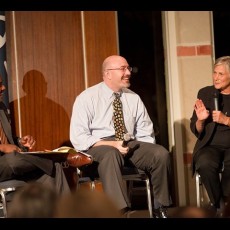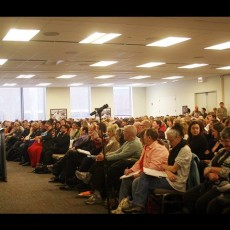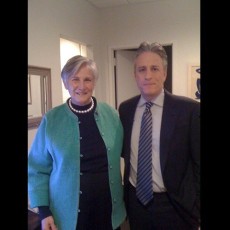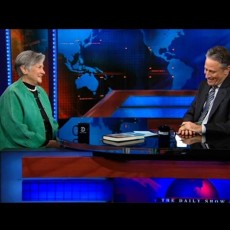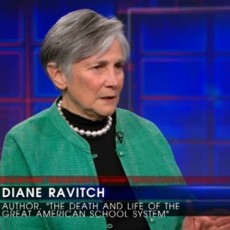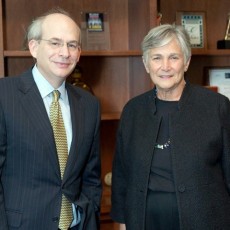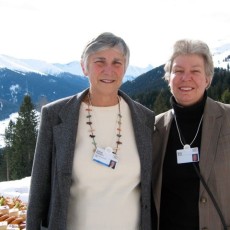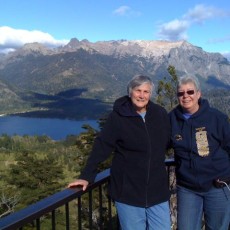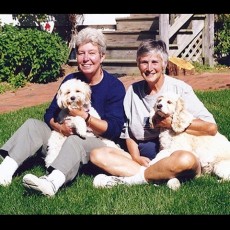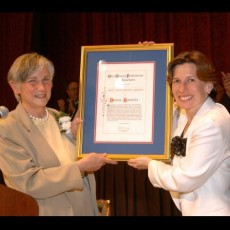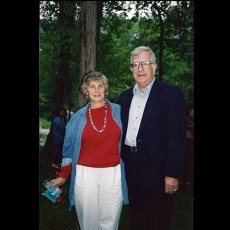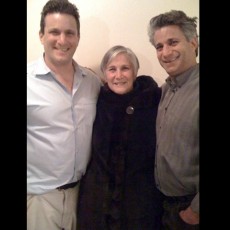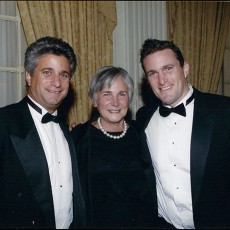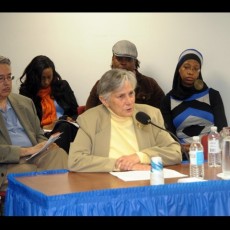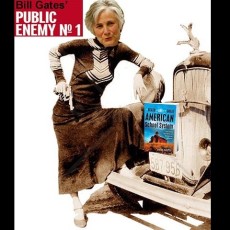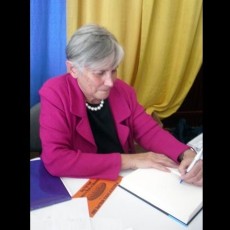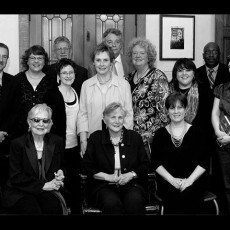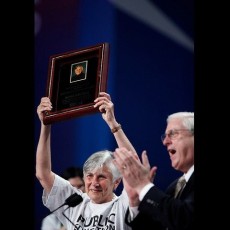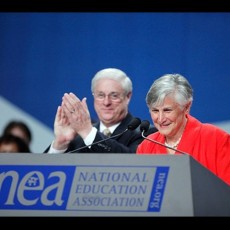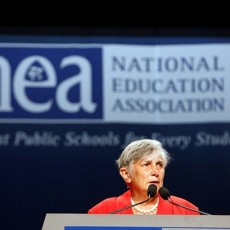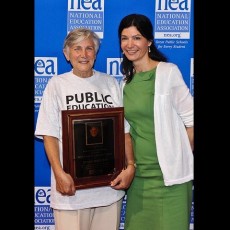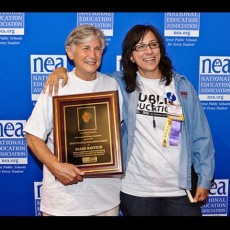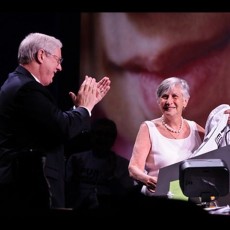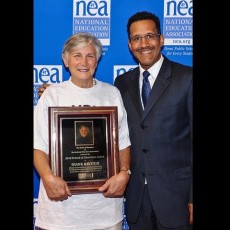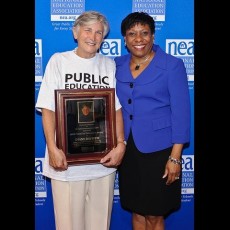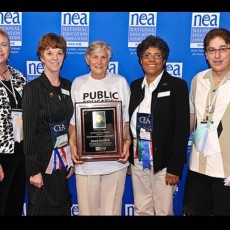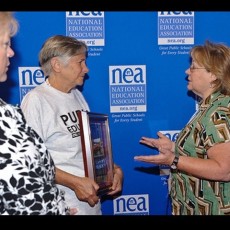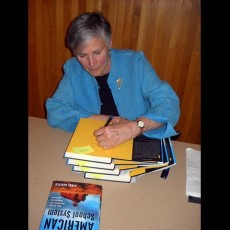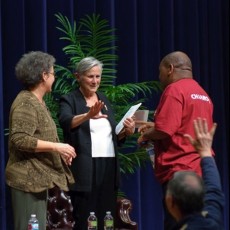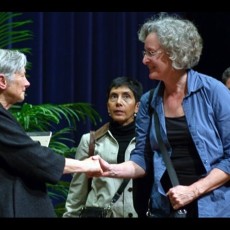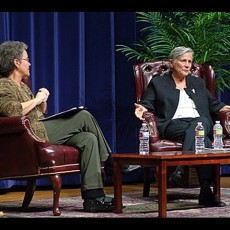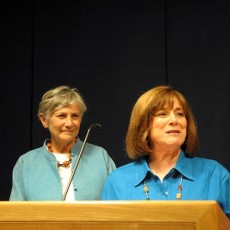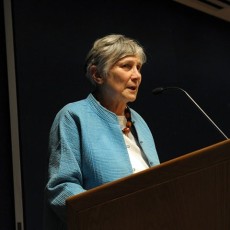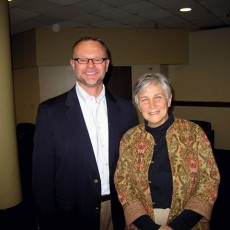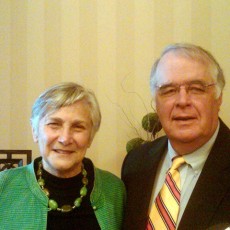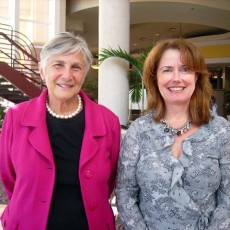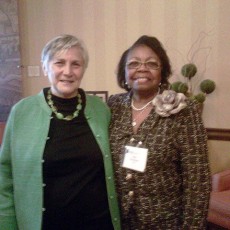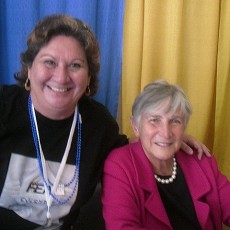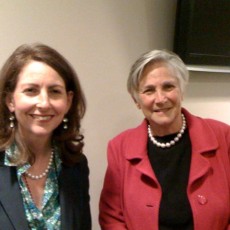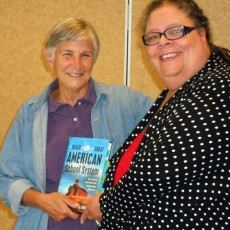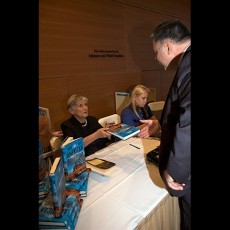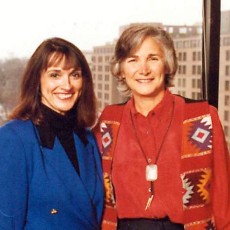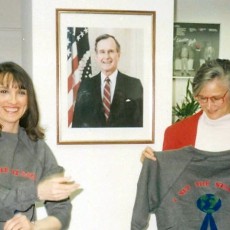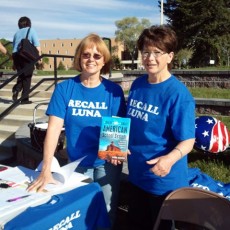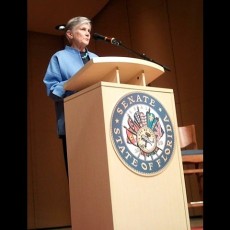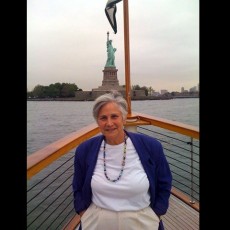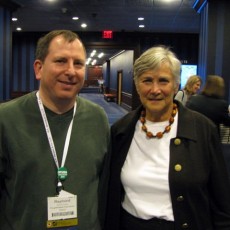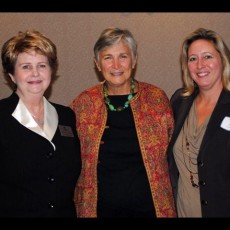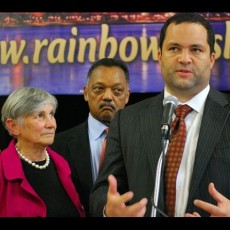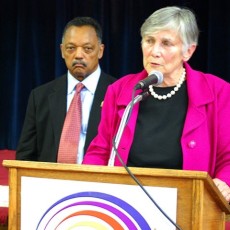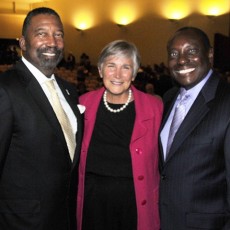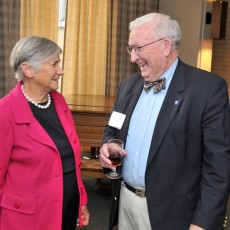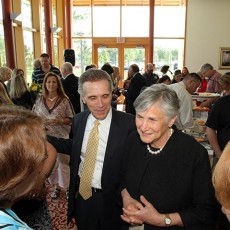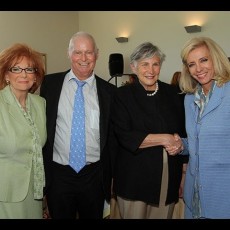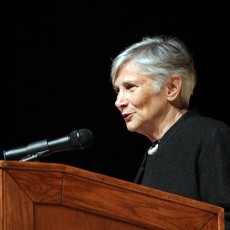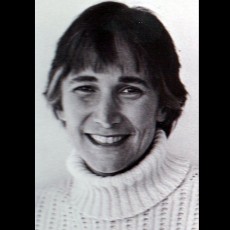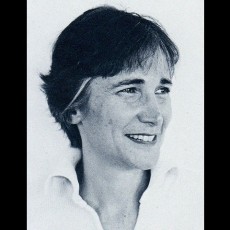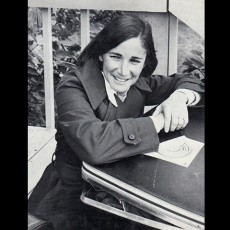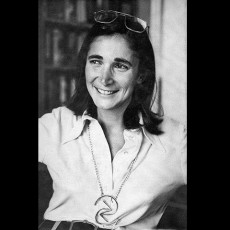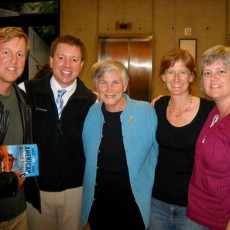Diane Ravitch
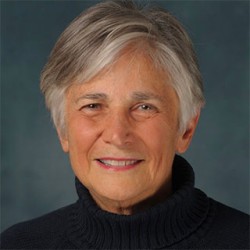
Diane Ravitch is Research Professor of Education at New York University and a historian of education. She is also a nonresident senior research fellow at the Brookings Institution in Washington, D.C. Ravitch, a member of the National Academy of Education, has previously taught at Teachers College, Columbia University and lectured widely in Europe and Asia on issues of democracy and civic education. Serving as an advocate for public education through government service, Ravitch championed the creation of voluntary state and national standards as the Assistant Secretary of Education under the administration of President George H.W. Bush. She has received numerous awards and honors for her support of education reform including: the National Education Association “Friend of Education” Award (2010); the Horace Mann League Outstanding Friend of Education Award (2011); and the Daniel Patrick Moynihan Prize of the American Academy of Political and Social Science (2011). Having edited fourteen books and authored more than 500 articles and reviews for scholarly and popular publications, Dr. Ravitch also wrote the recent best seller: The Death and Life of the Great American School System: How Testing and Choice are Undermining Education.
For more information, visit Diane Ravitch’s Website. To learn more about Diane Ravitch from her family and friends, visit her Reflections. To view photographs from Diane Ravitch’s personal collection, visit her Photo Gallery.
Curriculum Vitae Suggested readingsVisit the video below to watch a short overview of the interview with Diane Ravitch. Otherwise, see all four of the full interviews with Diane Ravitch below.
Video Interviews with Diane Ravitch:
Born in the “wide open town” of Houston, Texas as the third of eight children, Dr. Diane Ravitch recalls leisurely days spent playing with her siblings and neighborhood friends. Fond of learning even as a young child, Ravitch often sought quiet time to read her favorite books by climbing a tree. Influenced by her rabbi and excellent teachers, Ravitch developed her life-long love for writing while a student in the Houston public school system. In this clip, hear Dr. Ravitch’s humorous stories from her school days and the important political advice she received from her father.
Having honed her writing skills as a magazine editor after college, Dr. Diane Ravitch describes her initial interest in the history of the New York City school system. Feeling “more like a journalist” than a researcher in her early career, Ravitch recalls the countless hours she spent in the library studying local school history. Once discouraged from pursuing a doctoral degree, Ravitch has since championed voluntary state and national standards as the Assistant Secretary of Education. Watch this clip to learn more about the uncertain future of national standards from Dr. Ravitch.
Sharing a passion for education with her life partner Mary Butz, Dr. Diane Ravitch enjoys spending time with their intertwined families. Citing cooking as one of her limitations, Ravitch prefers to write, even describing her favorite book The Language Police as having almost written itself. Ravitch, once a staunch supporter of No Child Left Behind, now courageously challenges the legislation for its unanticipated consequences. In this clip, Dr. Ravitch warns against the mounting pressure of high-stakes testing and the growing demand for school choice.
Reiterating the importance of a free public education system, one not necessarily improved by competition, Dr. Diane Ravitch advocates for the needs of teachers. Concerned with the expansion of entrepreneurial schools and standardized testing, Ravitch identifies the “double challenge” facing those who support public education-the simultaneous need to improve schools and reduce poverty. Encouraging graduate students to “find one thing and make it your own,” she describes the life experiences that shaped her career as a writer and scholar. In this clip, Dr. Ravitch shares her desire to write one more great story-her own memoir.
Amrein-Beardsley, A. (2011, December 1). Inside the Academy video interviews with Dr. Diane Ravitch [Video files]. Retrieved from /inside-the-academy/diane-ravitch
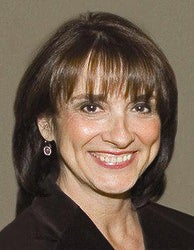
Francie Alexander
Describing her colleague and long-time friend Dr. Diane Ravitch as a “beautiful blend of art and science,” Francie Alexander recalls her apprehension when inviting Diane to participate in a blue ribbon panel for the California Department of Education. As Diane was “one of her education heroes,” Francie candidly describes that first phone call-“it was like calling Oprah for advice and actually making a contact.” Having also worked with Diane in Washington, D.C., Francie continues to admire her friend for her personal integrity and awe-inspiring intelligence. According to Francie, Diane almost declined the position as Assistant Secretary of Education-believing herself to be “fashioned-challenged.” In fact, Diane preferred to “work in her home office wearing sweats.” Noting her friend’s dedication and contribution to the educational standards movement, Francie describes Diane “as one of New York City’s Literary Lions” in reference to her latest book, The Death and Life of the Great American School System. While respected by both political parties, Diane’s most significant personal accomplishment remains her “close [connection] to and grounding by family and friends.” Admired by Francie for her commitment to public education, Diane has “put her considerable talents into what is arguably the most important and defining issue of our time”-ensuring “that every child is fully educated.”
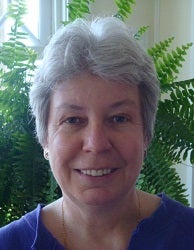
Mary Butz
As “best friends who can depend on each other through thick and thin,” Dr. Diane Ravitch and Mary Butz, her life partner of more than twenty five years, share a passion for education. Appreciating Diane for her “great personal integrity and strength,” Mary describes her as “simply brilliant at what she does.” Praising Diane for her “incredible ability to gather information and synthesize it into meaningful, logical explanations,” Mary notes that she writes clearly and to the point-using “no jargon [or] eduspeak.” Citing cooking and fashion among Diane’s few limitations, Mary recalls with fondness one of Diane’s fashion faux pas-she wore lavender knee highs to speak with Houston educators. Mary insists that “she had everyone’s undivided attention both for her words of wisdom and her florescent gams!” As a strong voice for public education, Diane insists that every child should “arrive to school well fed and in good health…believing that our current educational path is squandering our greatest resource-our youngsters.” Mary also admires her long-time partner for her “deep commitment to the idea that every child should be exposed to the arts, good literature, real history, genuine science and math.” Diane is a “formidable foe, great advocate, and [even] greater friend.”
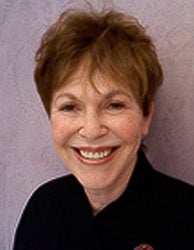
Linda Gottlieb
Remembering her friend and one-time classmate Dr. Diane Ravitch as “hilarious, warm, and utterly outrageous,” Linda Gottlieb reminisces over their fun-filled school days at Wellesley College. Describing Diane as “the wild girl from Texas who talked funny with that twangy-thing,” Linda recalls her friend’s “boisterous, rebellious spirit,” already evident “in a school not known for outrage.” Diane, having “aligned herself with the smartest, most interesting women on campus,” was unaccustomed to simply “doing what she was told.” Fondly recounting one such incident whereby Diane exited her dorm room one night by climbing out the window, Linda praises her friend for her sense of humor, noting that “Diane is also a Big Ham!” Also sharing memories of family and motherhood, Linda and Diane have remained lifelong friends. Linda admires Diane for her courage and steadfast convictions, both evident in her latest book, The Death and Life of the Great American School System. Perhaps her greatest triumph, Diane “dared to speak truth to power” in her persuasive best-seller. As that “necessary outlier who makes you question all your comfortable assumptions,” Diane is a contrarian-a “holy troublemaker,” according to Linda. Respected for her “measured, intellectually rigorous arguments,” Diane is a woman “with the guts to challenge establishment thinking.” According to her friend Linda, Diane is fearless, and perhaps at times ferocious-“for her causes, for her friends, [and] for her loved ones.”
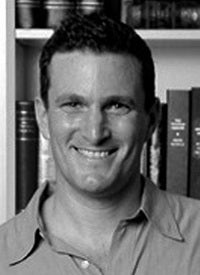
Michael Ravitch
Characterized by her son Michael Ravitch as having “tremendous personal integrity,” Dr. Diane Ravitch remains the person he calls “to share something funny or upsetting, [ask] for advice, or just to talk over the day’s news.” He appreciates her instruction in old-fashioned things such as how to diagram sentences, noting that “she passed on to [him] a love of books and words.” Sharing with his mother “a great sense of the absurd,” Michael describes her as a “wonderful grandmother” who enjoys “roll[ing] around on the floor” with her grandson. Always “intensely curious about and appreciative of the world around her,” Michael praises her educational accomplishments as well as “her willingness to change her mind about misguided policies like No Child Left Behind.” Her honest assessment of “what was happening about the country under the rubric of education reform” at a time of great partisan solidarity, is further evidence of her “bravery and clear-sightedness.” Admitting that recent reforms were “nothing like the vision of good education she has been advocating for her whole life,” Diane “has never worried too much about what other people say about her: she has lived her life on her own terms,” according to Michael. As an effective writer, Diane “has a wonderful ability to speak very clearly and concisely about complex matters”-her son notes that “she always says what she means and means what she says.” Both interested in the past and focused on the present, Diane “doesn’t waste her time looking backwards.” In the eyes of Michael, Diane is “having the time of her life [as] her own education has never come to an end.”
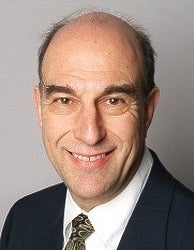
Richard Rothstein
Richard Rothstein describes his “enormous respect and unbounded admiration for [his] friend,” Dr. Diane Ravitch, noting that he has “learned a great deal from her over many years, even when [they] did not see ‘eye-to-eye’ on the issues.” Her earlier books shaped his views of education policy-even when he publically disagreed with her arguments. Citing Left Back: A Century of Failed School Reforms as an example, Richard readily admits that it “made an invaluable contribution and…probably influenced [him] more that [he] acknowledged at the time.” Noting her work as editor of the Brookings papers more than a decade ago as evidence of her lasting influence on education reform, Richard insists that she “provided scholars with the best summaries available of scholarship related to contemporary policy debates.” In fact, Richard “looked forward to her annual seminars…more than any other event [he] attended.” Describing Diane as “a glass half-empty kind of gal,” he willingly concedes that he lost a bet to Diane. She astutely predicted that No Child Left Behind would be reauthorized despite evidence of the “damage being done to American education.” While Richard insisted that the legislation would eventually implode under the weight of unattainable performance benchmarks and demands for local autonomy, he now admits that Diane won the bet on merit. Despite his chillingly accurate predictions, Richard again credits Diane for her long-range view-the damage has “now gone on for so long that it will have enduring effects” on the public education system that “cannot be easily undone.”
